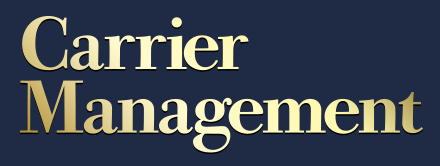As ERM professionals, we are always looking toward the future. The core of our job is to ensure executives are making risk-informed decisions in establishing and pursuing strategic objectives. Our goal isn’t to avoid risk but to help companies take intelligent risks to ensure success.
Since our profession should focus on the future, the recent Talent 2025 Report from RIMS got me thinking about up-and-comers in the ERM world and how they can be prepared to step into more influential roles in the years ahead.
As the baby boomer generation continues to retire en masse, many organizations are reporting a talent gap. Of the nearly 1200 responses to RIMS’ survey, only 16% agree that there will a sufficient number of graduates to meet demand in 2025.
Ouch!!
Although the RIMS report focuses more on traditional risk management roles, it is useful for understanding talent needs for ERM as well.
How can we as a profession ensure ERM will have the talent pool it needs to continue growing?
Based on my personal experience and speaking with other ERM professionals, most do not set out to have a career in ERM.
When I was pursuing my master’s degree in Risk Management/Insurance from Florida State University, ERM constituted only a small section of a single course. Upon learning about ERM, I did more research and later applied for a position to establish ERM at my then-employer, a large property insurance company in Florida.
If young adults are not making a deliberate decision to go into our field, and most risk management programs focus on insurable risks using traditional risk management techniques, how will they know about ERM? How can we as risk professionals spread awareness of something bigger than the same old risk management?
Managing the ERM Succession Planning Risk
We often discuss succession planning with executives because it is an oft overlooked risk. But do we think about it when it comes to our ERM role? We need to think about succession planning for the ERM field as a whole, not just succession planning within our organizations. To further our profession, current day ERM professionals are going to have to groom our replacements.
And by grooming, I don’t mean just technical skills…
As explained in recent posts, effective ERM professionals will need to think strategically and have exceptional listening and interpretation skills among others to succeed. This is not just true in the ERM profession, but in general. In commenting to the survey’s questions about education, one 20+ year veteran of the profession explained:
The industry would be better served to find people who want to be better engaged and join risk management, and then invest the time and resources on them.
How do we go about finding young professionals to groom for future roles in ERM?
For whatever reason, academia is a slow moving wheel. Formal education, at least in our current time, is falling behind the curve when it comes to preparing graduates for current and future risk management challenges.
Of all respondents, 76% agreed with the statement “universities must substantially alter their curricula to meet future risk management challenges.” For executives, this number is over 90%!!
Therefore, if academic programs specific to risk management are not the best pool, how can we get the tools and knowledge to the next generation of ERM professionals? Below are just a few ideas:
- Reach out to student organizations. Consider other degree areas that could move into ERM – let’s not rely on programs specific to risk management. For example, my bachelor’s degree is in accounting. Another ERM professional I know went to school to be an engineer.
- Become a mentor to a college student or even someone in high school. Many young people have intense curiosity about career possibilities. Connect with career counselors in local community colleges or speak at a career fair.
- Reach out to professors or adjunct instructors in business schools to see if you can speak to their classes about ERM.
- Look throughout your organization and others to find people who are thirsty for learning new things. Many people with operational experience fall into risk management roles and thoroughly enjoy being able to use their knowledge of operational areas in this new way.
In the end, many organizations are going to look at soft skills, and expertise more than formal education.
Therefore, aspiring ERM professionals need to understand the big picture of what they will need to exceed – a combination of knowledge, proper thinking and mindset. As this mindset grows in prominence, less time will need to be spent educating leadership and getting executive buy-in, which as I can attest, will be a big relief!
Those of us who are current ERM professionals who want to impact the future course of events will need to consider what we can do to help groom the current up-and-comers – those born after 1995 – on what ERM is, how it can be a rewarding career choice, and the skills needed to be successful.
How successful have recruiting efforts been for you?
Do applicants to positions in your organization come equipped with all of the skills needed to be an effective ERM professional?
I’m not sure if this topic is top-of-mind with other ERM professionals, but it’s something that’s really important if ERM is going to continue to help organizations succeed in an increasingly dynamic world.
Share your thoughts and any ideas on this important topic by leaving a comment below or joining the conversation on LinkedIn.
And if you are struggling to find talent to grow ERM at your organization, contact me to discuss any gaps and ways to go about addressing them.
Featured image courtesy of Pawel Nolbert via Unsplash







